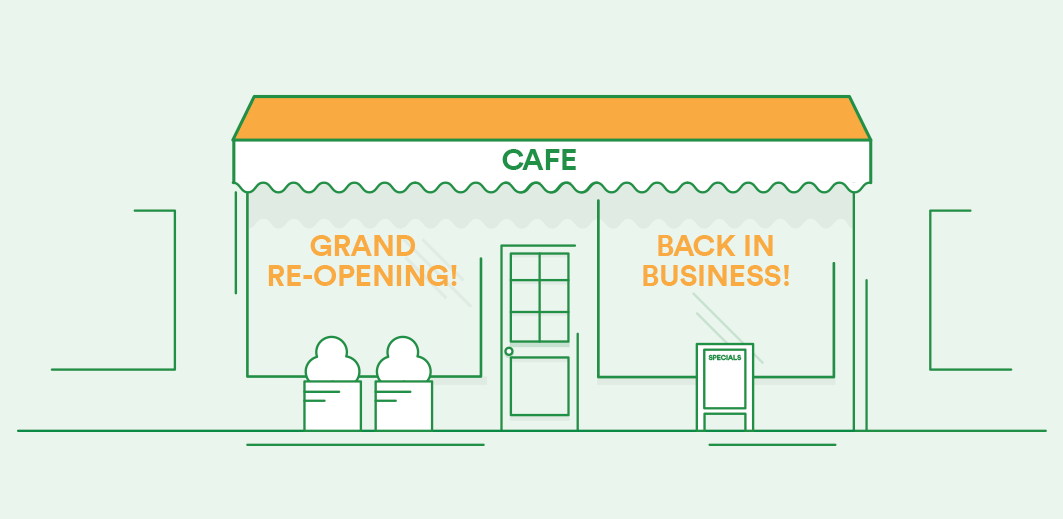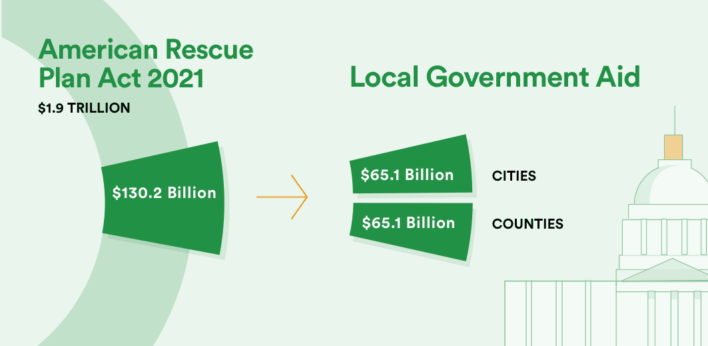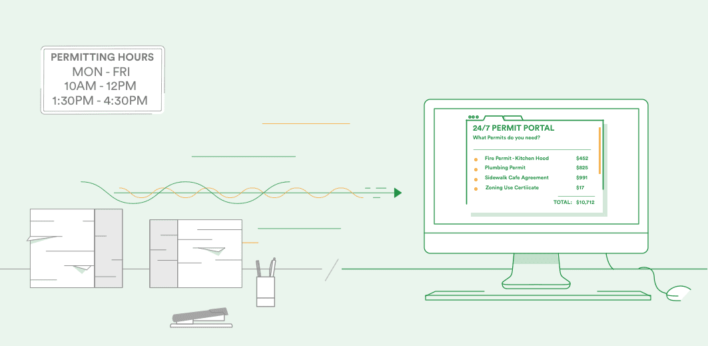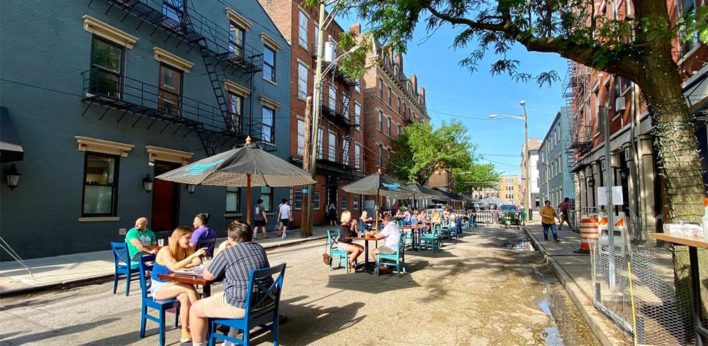COVID-19 has caused many of us to rethink how we do business, engage with our communities, and spend time at home. Search trends reflect this rethinking and indicate a shift toward economic recovery through outdoor business operations and home improvement projects. Local governments can support residents and businesses in these recovery efforts with accessible and intuitive permitting processes.
Changes on Main Street
Restaurants are the heart of a community–residents come from miles away to enjoy a special meal together, often forging bonds with the staff and with one another. When COVID-19 caused eateries to shut their doors, every community felt a sense of loss.
Now, restaurants are learning to operate under a new set of expectations, as many cities are not planning to completely reopen indoor dining in the foreseeable future and restaurants see a decline in patronage. In New York City, restaurant revenues are down 89% in April 2020 from April 2019. And even when partially open and allowed to operate on a take-out only basis, restaurants in San Francisco are still losing money, with 60% of restaurants unable to make take-out profitable. While these dire times will permanently change the restaurant landscape of every community, they are also an opportunity for local governments and businesses to work together to find new ways to thrive, like outdoor dining.

The search term “outdoor dining” reached its peak at the end of May 2020, up from a nearly nonexistent trend in Fall 2019, indicating the rise in restaurant owners, patrons, and government officials searching for ways to permit this activity. Outdoor dining permits are a way for cities to empower restaurants to reopen in a way that is both financially reasonable for the business and safe for customers.
In addition to outdoor dining, we’re hearing many cities, businesses, and residents express interest in making things like curbside retail, outdoor alcohol use, and temporary street closures permissible while the concern of virus transmission remains heightened. These new ways of operating are an opportunity for updated regulations and improved government service delivery to support local businesses and breathe life into an economy.
Changes at Home
While businesses are closed and unemployment remains high, residents are spending more time at home and looking for ways to improve their spaces. This is especially true outdoors, as restrictions on spending time outside have caused people to grasp any opportunity for fresh air and sunshine, often in their own backyards. Sales for home improvement goods grew significantly in the first half of 2020–Lowe’s saw an 11.2% increase in sales Q1 2020 compared to Q1 2019, indicating a strong desire from residents to embark on property improvements and enhancements that will boost local economies through spending, increased property values, and greater property tax revenue.

To ensure the safety of residents and the community, many of these home improvement projects require permits from the city, and citizens are eagerly searching for how to apply and receive them. Queries for “pool permit”, “fence permit”, and “deck permit” spiked in 2020, and we only expect further growth in interest as the weather warms up.
Changes to Your Service Delivery Model
The search for these permit types and others is growing. But, if city offices are closed and applications are paper-based, these permits are unattainable for local businesses and residents. Even when offices begin to reopen, applicants are wary of interacting with staff and struggle to understand new protocols and wildly varying opening hours. The need to deliver services online has been proven by this crisis, and community members expect that their governments will transition to accessible, always-available permitting and licensing.
OpenCounter can help municipalities bring these permits online. Contact us today to learn how to get started.



